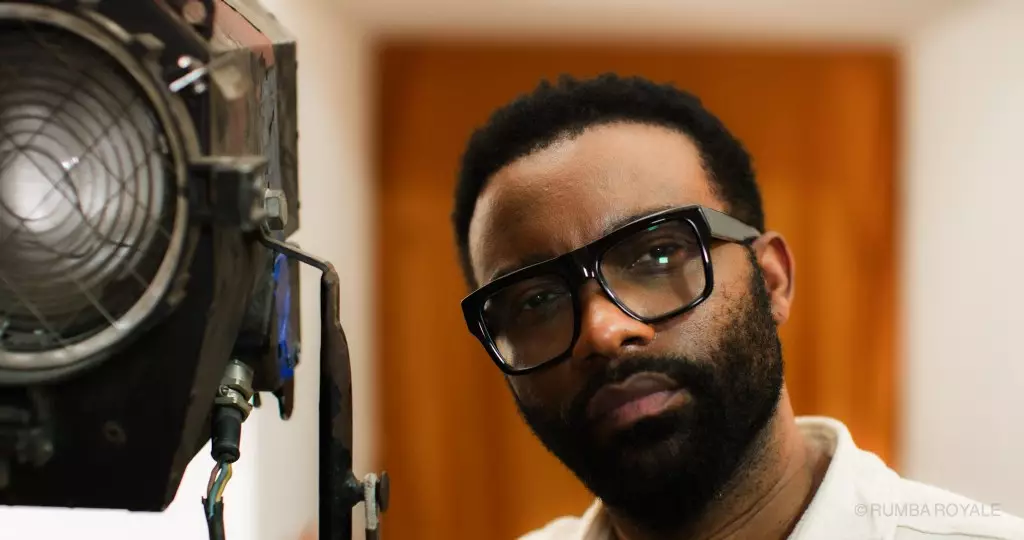The upcoming movie “Rumba Royale” presents a tantalizing opportunity to explore the intersection of music, love, and political history in the heart of Africa. Directed by emerging talents Yohane Dean Lengol and Hamed Mobasser, this film is not just another cinematic venture; it’s a bold declaration of artistic intent from the Democratic Republic of Congo. By marrying the rich tapestry of Congolese rumba music with pivotal moments in the nation’s turbulent political history, “Rumba Royale” emerges as a project that endeavors to resonate well beyond its local roots. This duality will establish its importance not merely as entertainment but as a cultural chronicle that challenges the status quo of historical films in Africa.
Star Power and Cultural Authenticity
Fally Ipupa, widely known as the “Prince of Rumba,” leads a promising cast that brings both star power and cultural authenticity to the film. His involvement is not merely a tagline; it represents a bridge between mainstream popularity and deep-rooted cultural expression. For decades, Congolese music has captivated audiences, yet the stories behind the artists often remain untold. Ipupa’s rise within this narrative framework is crucial; it invites a new generation of music lovers to engage with their heritage and inspires pride in Congolese culture. The inclusion of notable actors like Mélanie Bokata and Cécile Djunga further hints at a competitive spirit among a talented ensemble that could rival broader international productions.
Pathé Touch Afrique’s Ambitious Vision
The rebranding of Pathé Touch Afrique illustrates a company in evolution, ready to meet the pressures and opportunities of a changing film landscape. Under the leadership of Sébastien Onomo, the company is making it known that African stories—especially those with Pan-African appeal—are worth telling, and worth watching. The planned distribution across French, English, and Portuguese-speaking countries aligns with a growing trend of unifying diverse narratives from the continent. This ambitious undertaking is notable; it highlights a significant investment in both the quality of the film and the breadth of its reach, setting a new bar for what is achievable in African filmmaking.
A Journey into the Heart of a Nation
Set against the backdrop of the Congo’s struggle for independence from Belgian colonial rule, “Rumba Royale” promises to encapsulate a pivotal period with emotional depth and historical reverence. While many films tackle similar themes, few intertwine cultural traditions like Congolese rumba music with political narratives. This film dares to ask: Can historical context enhance our appreciation of cultural expressions? Moreover, the film’s narrative embodies a dual purpose—preserving the memory of a crucial struggle while celebrating the rich artistic output that emerged from it. It serves as a reminder of the resilience of the Congolese spirit in the face of adversity.
Challenges and Resilience
Often, artistic ambition is met with a myriad of obstacles—from financial constraints to socio-political dynamics; the cinematic landscape can be unforgiving. Yet Lengol and Mobasser’s insistence that local stories can achieve global resonance illustrates a much-needed resilience in the film industry. Their dedication to overcoming challenges provides an inspiring anecdote for budding filmmakers across the continent. They have made it clear that every effort and sacrifice made during the film’s production reflects a unified belief in the story’s significance. Such drive not only nurtures the growth of African cinema but also positions it as a formidable player on the global stage.
The Evolution of African Cinema
“Rumba Royale” is emblematic of a burgeoning movement aiming to shift the narrative surrounding African cinema. In a world dominated by Western films, the need for authentic representation of African experiences has never been more critical. By taking definitive steps forward, filmmakers like Lengol and Mobasser are reshaping perceptions and paving the way for future generations. The dialogue surrounding African stories is evolving, and with a diverse array of voices ready to share their narratives, the unfolding chapters in this cinematic journey promise to be as rich and varied as the continent itself. Thus, “Rumba Royale” is not simply a film; it is a harbinger for a renaissance in African storytelling.

